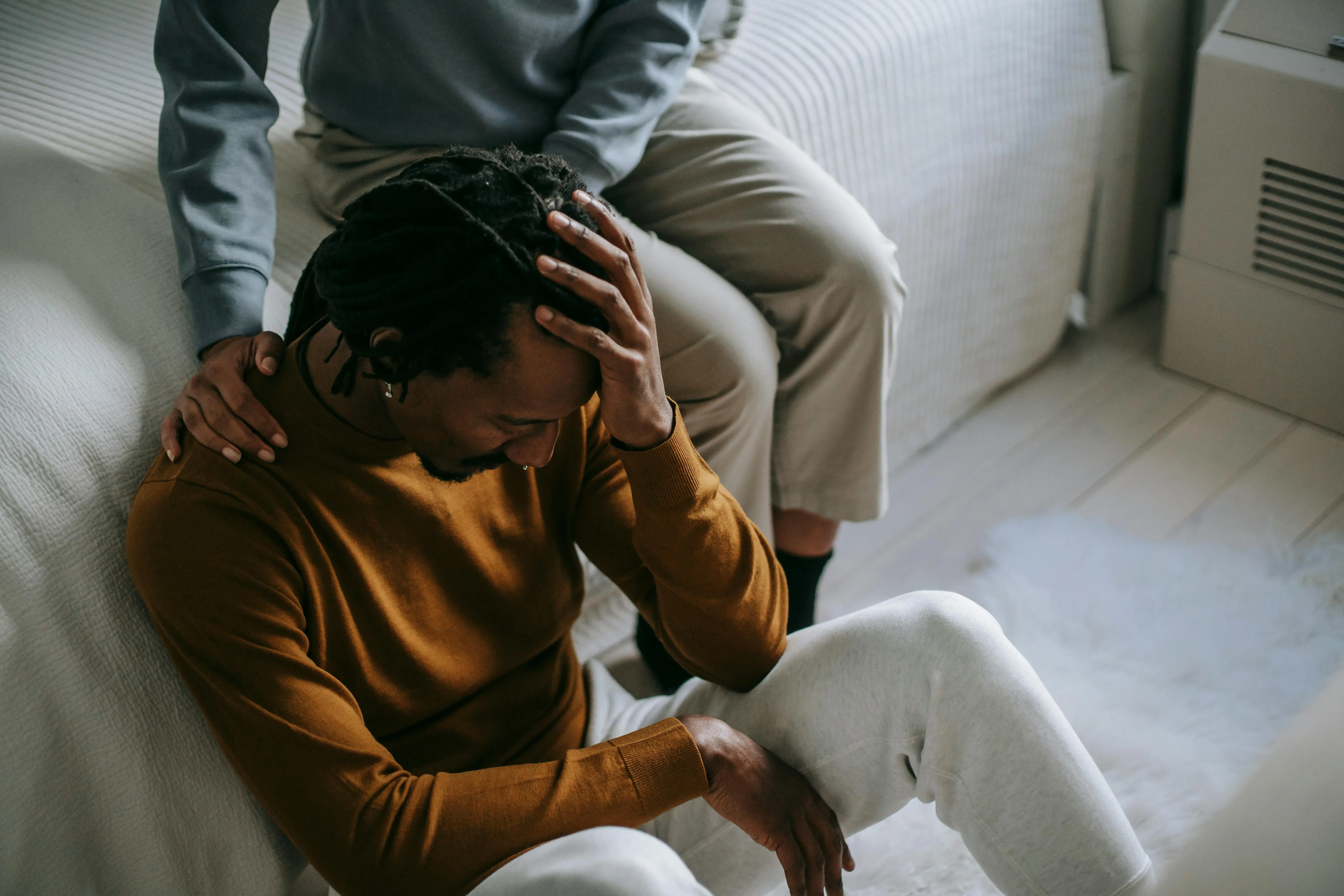What is health anxiety?
July 16, 2025

Disclaimer: Human Health is not recommending any specific medical treatment for any particular symptom, nor providing any other medical advice. Always seek the advice of your doctor regarding any medical concern.
It’s normal to sense changes in your physical or mental wellbeing and wonder if you may be sick. However, feeling excessive worry about having or developing an illness is not a typical experience.
This type of persistent concern surrounding the possibility of developing a medical condition can actually be a medical condition in itself. In broad terms, it’s known as health anxiety.
There are some specific diagnoses for mental health conditions that result in presentations of health anxiety. These include illness anxiety disorder (previously known as hypochondriasis), and somatic symptom disorder. If you’ve ever heard someone say they’re a ‘hypochondriac’, they’re likely referring to the fact that they feel some form of anxiety about their health.
What causes health anxiety?
Health anxiety may be triggered by an event causing major life stress, such as experiencing the death or illness of a loved one. It may also be triggered by a history of childhood abuse or illness. Spending lots of time reading about medical conditions, or growing up in an environment where health concerns and anxieties were often shared may also trigger health anxiety.
People who are more sensitive to noticing bodily sensations may be more likely to present with health anxiety. Health anxiety may be more prevalent in the following populations:
- Females
- Older age groups
- Fewer years of education
- Lower socioeconomic status
- Unemployed people
- People with chronic physical or psychiatric conditions, particularly other anxiety disorders
What does health anxiety look like?
Health anxiety is characterized by feelings of intense fear or preoccupation with the idea of having an undiagnosed illness, or developing an illness in the future. In particular, people with health anxiety are usually concerned about serious illnesses, such as cancer or heart attacks.
Someone with health anxiety may or may not be experiencing symptoms of an illness. If symptoms are present, they may cause the individual significant distress and disrupt their everyday life, but the severity of the symptoms is often disproportionate to their level of concern.
Some patients with health anxiety may confuse normal sensations, such as feeling dizzy after standing up (known as orthostatic dizziness), or temporary buzzing sounds in the ears (known as transient tinnitus), with symptoms of a serious medical condition. Even without feeling any symptoms, people with health anxiety will often experience stress as a result of their fears about being or becoming unwell.
Health anxiety can also cause people to feel alarmed about illness in general, and may be triggered by things such as hearing about other people becoming unwell or reading about health conditions.
People with health anxiety may spend an excessive amount of time thinking about their symptoms or their potential illness. They may repeatedly check their body for signs of illness as a result of their preoccupation. This might look like examining parts of their body in the mirror for long periods of time, seeking medical help often and from multiple providers, and talking to others about their health and related concerns frequently. This is known as the ‘care-seeking’ type of health anxiety.
On the other hand, some people with health anxiety may avoid seeking medical help or information, because they are afraid that they will be found to have a serious medical condition, and fearful of the consequences of that reality. They may also avoid doctor’s appointments or hospital visits if they feel like their concerns will not be validated or reassured by the health care team. This is known as the ‘care-avoidant’ type of health anxiety.
Health anxiety can significantly impact a person’s life, and may lead them to become withdrawn as a result of their fears, may render them unable to function as usual, and may put considerable strain on interpersonal relationships due to the excessive concern and energy the individual devotes to their symptoms or potential illness.
How is health anxiety diagnosed?
Health anxiety is only diagnosed when the possibility that their symptoms and distress are being caused by other medical conditions has been excluded. It may be diagnosed when medical examinations and tests are performed by a doctor to determine if there is any underlying illness causing the patient’s concerns and/or symptoms, and one of the below outcomes occurs:
- The patient’s symptoms are not able to be explained fully by a general medical condition or by the direct effect of a substance, or;
- No serious medical condition that accounts for the patient’s symptoms and concerns is identified.
A notable factor in the diagnosis of health anxiety is that the patient’s distress is not primarily caused by the symptoms of a current or potential medical condition, but rather from the thought of having an illness in itself. The symptoms of health anxiety must also have been present for at least 6 months.
Health anxiety often causes people to persistently seek advice about their health, yet despite this, their concerns are not satisfied by reassurance from doctors, medical tests, or those close to them that their symptoms and/or condition are not serious. In fact, attempts at providing medical advice may even make the patient’s anxiety worse. Presentation of these behaviors may indicate health anxiety.
What if they really are sick and they’re not being taken seriously?
It must be emphasised that it is not uncommon or wrong to feel worried by the thought of discovering you have a medical condition. Our health is fundamentally important to our ability to live well, and as such should be taken seriously.
It is entirely possible for health anxiety to be present in addition to another health condition. Consequently, the invalidation of legitimate health concerns because a patient appears to have health anxiety is a real consideration for doctors and patients alike.
Of course, no patient wants to feel unheard or dismissed by a doctor when there may be something seriously wrong with their health, and no doctor wants to discount a genuine patient concern. Doctors have to take many factors into account when interacting with patients who may potentially have health anxiety in addition to or instead of a physical or mental health condition.
These may include things such as the results of the patient’s examinations and test results, the behavior of the patient during and between appointments, the extent to which the patient is spending time researching and seeking help for their condition, and observations from family and friends close to the patient.
Ultimately, it is up to the clinician to make a reasonable judgement about the patient’s condition based on their medical knowledge and their knowledge about the patient.
How is health anxiety treated?
Treatment of health anxiety primarily involves helping the patient cope with their anxious thoughts related to their health. Patients may be referred to a psychologist or psychiatrist with experience in psychotherapy, to assist the patient in managing their thoughts and behaviors to reduce distress.
Alongside professional treatment, many people find it helpful to keep a mental health journal and a mental health tracker.
Some medications, such as antidepressants, may also be effective in treating health anxiety. It is often a combination of psychotherapy and medication that is recommended for patients with health anxiety.
Click here to read about how antidepressants like Lexapro might work to treat symptoms of anxiety.
Regular follow-ups with a primary care physician may help limit the over-utilization of healthcare services, and allow the doctor to assess and reassure any new concerns.
We hope you found this post useful, and if so, please feel free to share it with others. We’d love for our resources to reach those who need them.
Resources
- French JH, Hameed S. Illness Anxiety Disorder. [Updated 2023 Jul 16]. In: StatPearls [Internet]. Treasure Island (FL): StatPearls Publishing; 2024 Jan. Available from: https://www.ncbi.nlm.nih.gov/books/NBK554399/
- Diagnostic and Statistical Manual of Mental Disorders (5th edition).
This is a div block with a Webflow interaction that will be triggered when the heading is in the view.










.jpg)





.png)

